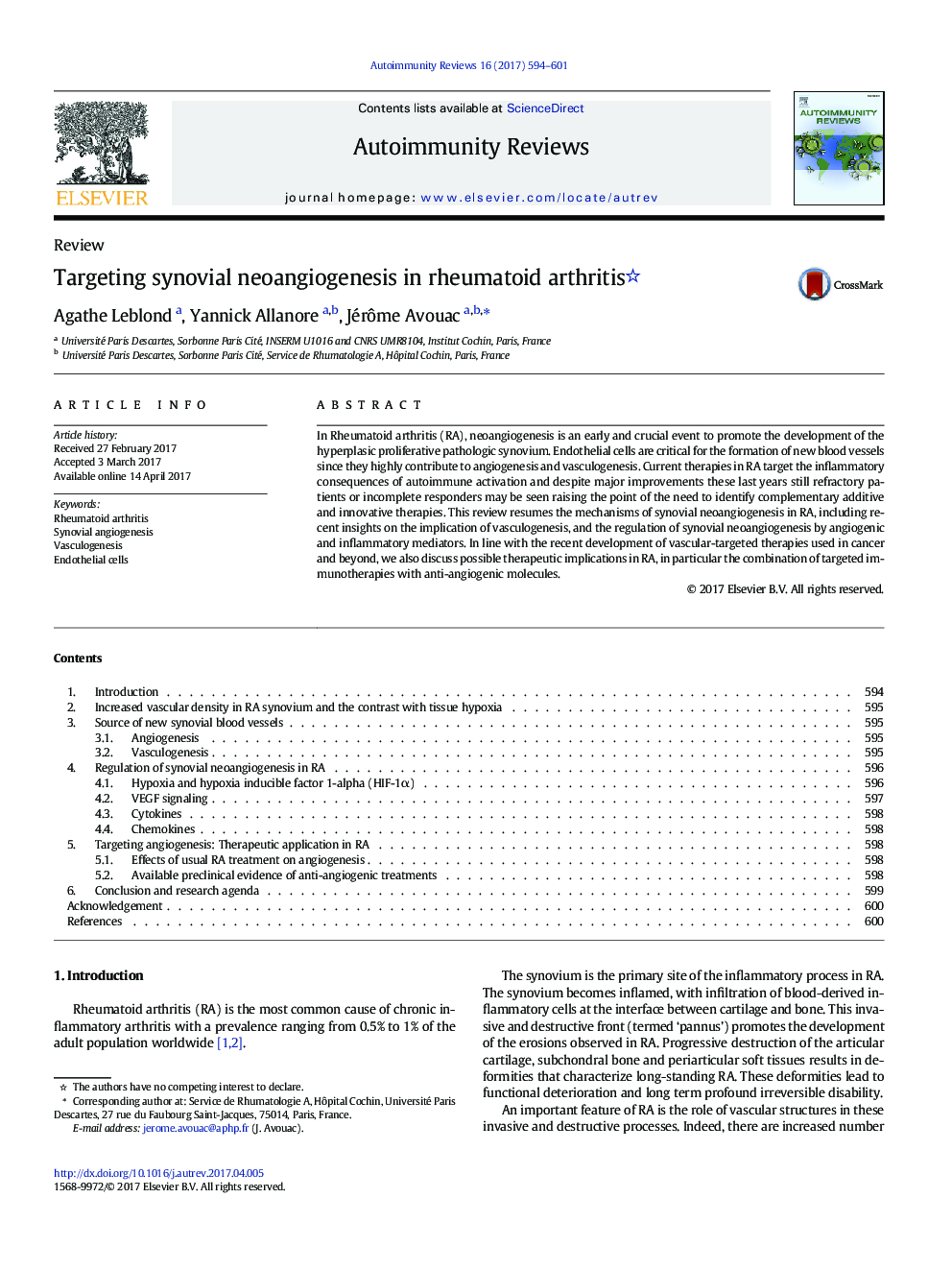| کد مقاله | کد نشریه | سال انتشار | مقاله انگلیسی | نسخه تمام متن |
|---|---|---|---|---|
| 5665374 | 1407746 | 2017 | 8 صفحه PDF | دانلود رایگان |

- Neoangiogenesis is a key process in the development of the synovial pannus.
- The formation of new synovial vessels depends on angiogenesis and vasculogenesis.
- A positive feedback loop exists between synovial inflammation and neoangiogenesis.
- Hypoxia and VEGF are the most potent proangiogenic growth factors in RA synovium.
- Modulation of angiogenesis in experimental arthritis has shown promising results.
In Rheumatoid arthritis (RA), neoangiogenesis is an early and crucial event to promote the development of the hyperplasic proliferative pathologic synovium. Endothelial cells are critical for the formation of new blood vessels since they highly contribute to angiogenesis and vasculogenesis. Current therapies in RA target the inflammatory consequences of autoimmune activation and despite major improvements these last years still refractory patients or incomplete responders may be seen raising the point of the need to identify complementary additive and innovative therapies. This review resumes the mechanisms of synovial neoangiogenesis in RA, including recent insights on the implication of vasculogenesis, and the regulation of synovial neoangiogenesis by angiogenic and inflammatory mediators. In line with the recent development of vascular-targeted therapies used in cancer and beyond, we also discuss possible therapeutic implications in RA, in particular the combination of targeted immunotherapies with anti-angiogenic molecules.
Journal: Autoimmunity Reviews - Volume 16, Issue 6, June 2017, Pages 594-601